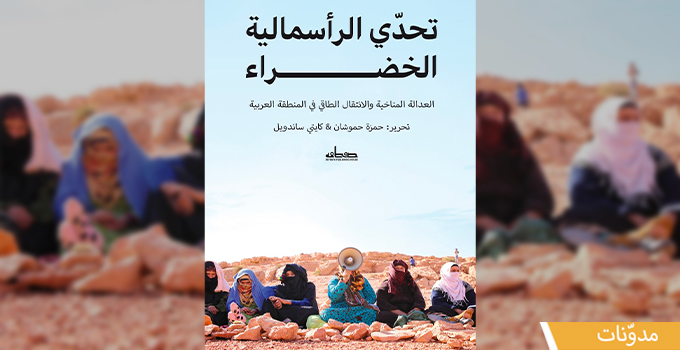
The success of controversial candidate Kais Saied in winning the trust of Tunisia’s burgeoning youth and in building a movement of solidarity around a vision of direct democracyhighlights the thirst for change and social justice in Tunisia.
Most analyses point out that the victory of two political outsiders can be interpreted as a razzia to existing political regimes.But this scenario is also an opportunity for human rights defenders, civil society organizations and political representatives to reflect on their role as amplifiers of communities’ voices. For feminist movements and individual their allies, there is a need to rethink ways of bringing forward the concerns of women to the table and supporting bottom-up feminism at the heart of social justice.
Time to break with the legacy of institutional feminism
In a personal conversation with Sarah Ben Said, president of the NGO Aswat Nisaa that works on women’s political rights in Tunisia, Ben Said expressed herconfusion to me. “I just don’t understand. Why are so many educated women voting for Kais Saied when he is openly against equal inheritance? Are women voting against their own interests? Perhaps we as civil society are failing to understand their concerns. We need to rethink our models and strategies.”
Her comment opened the door to a number of questions: Do all Tunisian women have the same interests? Even if we were to assume that civil society actually captures the diverse interests of all Tunisian women including the most vulnerable,when in the last nine years have the voices of these different communities driven the design of feminist projects and policies in Tunisia?
If we look at feminism as a movement that prioritizes social solidarity, the results of the elections offer a window of opportunity to finally advocate for grounded egalitarian policies. But these opportunities cannot be captured without honest reflection on the trajectory of feminist advocacy over the past nine years.
Since the 1950s, feminism was co-opted by the government to legitimize Ben Ali and Bourguiba’s authoritarian regimes. Post-revolutionary institutional feminism has built on this legacy to pragmatically suggest reforms that serve gender equality in the country. By focusing on individual rights and personal freedoms, Tunisian feminist organizations and national efforts have been concerned with removing legal and “cultural” barriers of discrimination between “men” and “women” or “men” and “minorities”. The focus has been on fixing imbalances in certain legislation so that it is in alignment with international standards. In this context, the Individual Freedoms and Equality Committee (COLIBE) was established and discussions around equality inheritance have proliferated. But COLIBE’s report published in June 2018 did not address any socio-economic, cultural and environmental discrimination.
I argue that these omissions lead to a failure to acknowledge the hierarchies of oppression that Tunisian women face in their daily lives. This approach also disregards the fact that for many women, socio-economic struggles are at the heart of their oppression.
- How can women’s individual rights become a reality when collective opportunities are scarce and vulnerable populations lack access to the most basic services?
- Should feminist advocacy enable the most vulnerable women to cope better with thisreality of shrinking resources and increasing social and economic inequality, or challenge the current system through the lens of social justice?
Tunisian women’s interests: Varying struggles and realities
Women are a diverse category with varying degrees of social power. So how can they share the same interests? The diverse experiences of Tunisian women expose them to different and similar realities. The reality of agricultural women workers in Tunisia is different from that of women living in cities. Simultaneously, some rural and urban women may share similar experiences of poverty and exploitation in the world of work. Agricultural women workers may also perceive their experience of the same agriculture work differently from each other. Some women living in Tunis, the country’s capital, may have greater access to health services than those living in rural areas. These same women may bond over similar experiences of violence in the household.
Women’s issues may also be seen in relation to other social struggles. For instance, women are discriminated against as workers and as women.Women perform invisible unwaged labour such as domestic work. They are highly represented in the informal economy, which employs 83% of working women under the age of 40. When women participate in the formal economy, they are concentrated in high-risk exploitative industries such as the garment industry and hold weak bargaining power against their male or female employers.
The prospect of a direct democracy and Tunisian youth’s hopes for radical change is an opportunity for policy-oriented feminism to finally break with the one-size-fits-all vision of women’s liberation and to move beyond identity cleavages. It is a unique opportunity to portray the complexity of “women” and translate their many voices into national advocacy.
How? Towards bottom-up feminism for all
While the future of Tunisian feminism should suscitate discussions and be strongly involved in tackling the root causes of inequality at a societal level—unbalanced power between corporations and individuals, degradation of basic services, shrinking resources, land rights—there is a need for NGO-based feminism to reconnect with communities and youth. This reconnection beginswith questioning processessuch as funding mechanisms and donor accountability that may widen the gaps between communities and civil society organizations, and by setting an agenda shaped by the voice of people.





iThere are no comments
Add yours